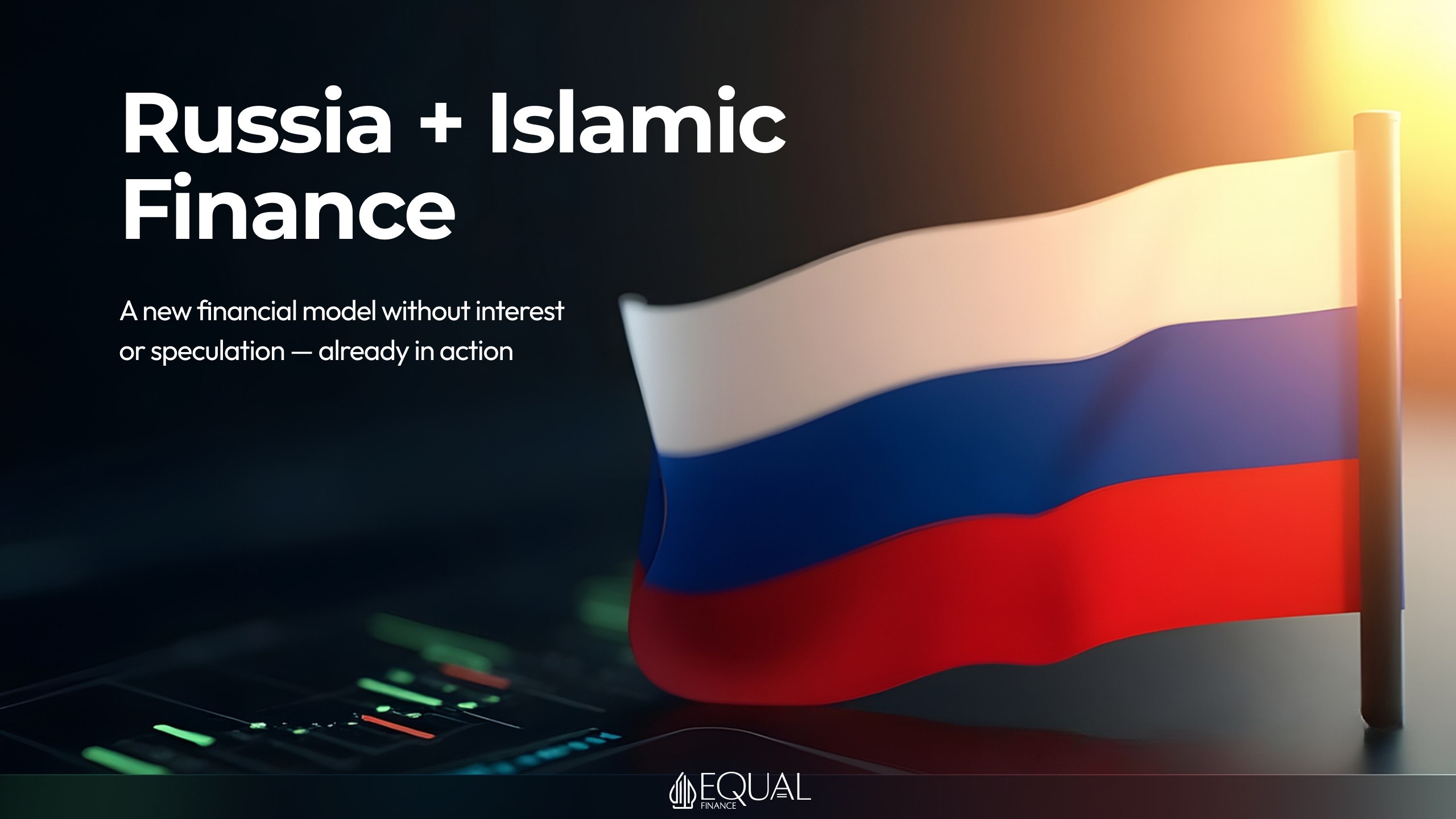Islamic finance, grounded in Sharia principles, is gaining momentum worldwide, and Russia is actively joining this trend. Since 2023, the country has been conducting an experiment to introduce partner financing compliant with Islamic law. This article explores the current state of Islamic finance in Russia, key achievements, challenges, and prospects for 2025, drawing on the latest available data.
Principles of Islamic Finance and Their Relevance
Islamic finance operates on Sharia principles, prohibiting riba (interest), gharar (uncertainty in transactions), and funding of haram activities like alcohol, tobacco, or gambling. Instead of interest, mechanisms such as profit-and-loss sharing, leasing (ijara), installment sales (murabaha), and partnerships (musharaka) are used. These principles appeal not only to Muslims but also to those valuing ethical and transparent financial practices.
In Russia, home to approximately 20 million Muslims, interest in Islamic finance is growing amid global economic shifts and the need for alternative financial tools. Geopolitical factors, including sanctions, also encourage partnerships with Muslim-majority countries where Islamic finance is prevalent.
Partner Financing Experiment
On September 1, 2023, Russia launched an experiment to implement Islamic banking in four regions: Dagestan, Chechnya, Bashkortostan, and Tatarstan. Federal Law No. 417-FZ, signed by President Vladimir Putin, established a legal framework for partner financing, covering fundraising, leasing, installment sales, and other Sharia-compliant operations. The experiment is set to run until September 1, 2025, but in January 2025, the State Duma proposed extending it to 2028 and expanding the scope of permitted operations.
According to the Bank of Russia, Islamic banking turnover reached 5 billion rubles in the first half of 2024, with 2.8 billion in Tatarstan alone. A total of 1,225 Sharia-compliant deals were recorded. While modest compared to the global market ($4.5–4.7 trillion in 2024), these figures reflect growing interest in new financial products.
Key Players and Products
Major banks like Sberbank, Ak Bars Bank, Rosselkhozbank, and Gazprombank are active in Russia’s Islamic finance market. Ak Bars Bank, a leader in Tatarstan, offers murabaha (installment sales) and ijara (leasing) products for businesses and individuals. Sberbank opened an Islamic finance office in Bashkortostan in 2023 and hosted sessions at forums dedicated to partner financing.
Islamic banking products include halal cards, interest-free savings accounts, financing for small and medium enterprises, and leasing of equipment and real estate. For instance, murabaha enables banks to purchase goods for clients and sell them on installment plans, while ijara facilitates lease-to-own arrangements. These tools are particularly in demand in regions with significant Muslim populations.
Achievements and Interim Results
The experiment has yielded notable successes. First, a participant registry managed by the Central Bank ensures transparency. Second, banks are adapting products to Sharia standards, engaging experts from the Accounting and Auditing Organization for Islamic Financial Institutions (AAOIFI). Third, public awareness is increasing: Deputy Finance Minister Ivan Chebeskov estimates the potential market for partner financing in Russia could reach 1 trillion rubles in the coming years.
International cooperation is also strengthening. In 2024, forums like “Russia – Guarantor of Partnership” and the St. Petersburg International Economic Forum discussed attracting investments from Gulf countries. Experts, including Mufti Taqi Usmani, shared insights that Russia is leveraging to build its infrastructure.
Challenges and Limitations
Despite progress, Islamic finance in Russia faces several hurdles. The first is an incomplete regulatory framework. The current law restricts operations, such as prohibiting banks from direct trading, which complicates murabaha transactions. Proposed amendments in 2025 aim to address these barriers.
The second challenge is low financial literacy. Studies indicate that only a small portion of Russia’s Muslims are familiar with Islamic banking principles, limiting demand, especially among secular populations who might otherwise be drawn to its ethical appeal.
The third issue is a shortage of qualified professionals. Sharia expertise requires deep knowledge of Islamic law and finance, and Russia currently lacks such specialists. While the Council of Muftis of Russia and the Russian Association of Islamic Finance Experts (RAEIF) are working on training, the process is time-consuming.
Finally, double taxation remains a barrier. Murabaha transactions, involving asset purchase and resale, may be taxed twice, increasing costs. Resolving this requires changes to tax legislation.
Prospects for 2025 and Beyond
In 2025, Islamic finance in Russia is expected to grow further. Plans include expanding the experiment to additional regions, supporting market growth. According to CIBAFI General Secretary Abdelilah Belatik, the global Islamic finance market could reach $5.3 trillion by the end of 2025, and Russia aims to carve out its niche.
Key priorities include:
- Fintech development. Islamic fintech, such as halal payment systems and crowdfunding platforms, could attract younger audiences.
- Attracting foreign investment. Stronger ties with the UAE, Saudi Arabia, and Malaysia will facilitate capital inflows for infrastructure projects.
- Expanding product offerings. Banks plan to introduce sukuk (Islamic bonds) and takaful (insurance), diversifying the market.
- Raising awareness. Financial literacy campaigns, supported by religious authorities, will build trust in Islamic finance.
Experts like Madina Kalimullina from the Council of Muftis of Russia emphasize that Islamic finance is not just an experiment but a critical step in Russia’s economic evolution. It promotes financial inclusion, appealing to those who previously avoided conventional banking due to religious beliefs.
Role of Religious Leaders and Global Experience
The Council of Muftis of Russia and the Spiritual Administration of Muslims of Russia play a vital role in promoting Islamic finance. Mufti Ravil Gainutdin proposed Islamic banking to the president as early as 2008, and today his organization coordinates Sharia compliance and educational programs. The involvement of religious leaders boosts trust among Muslims.
Global experience is also significant. Russia is studying models from Malaysia, where Islamic finance holds a substantial market share, and the UAE, with its robust sukuk and takaful infrastructure. Collaboration with AAOIFI and the Islamic Development Bank helps adapt international standards to Russian realities.


